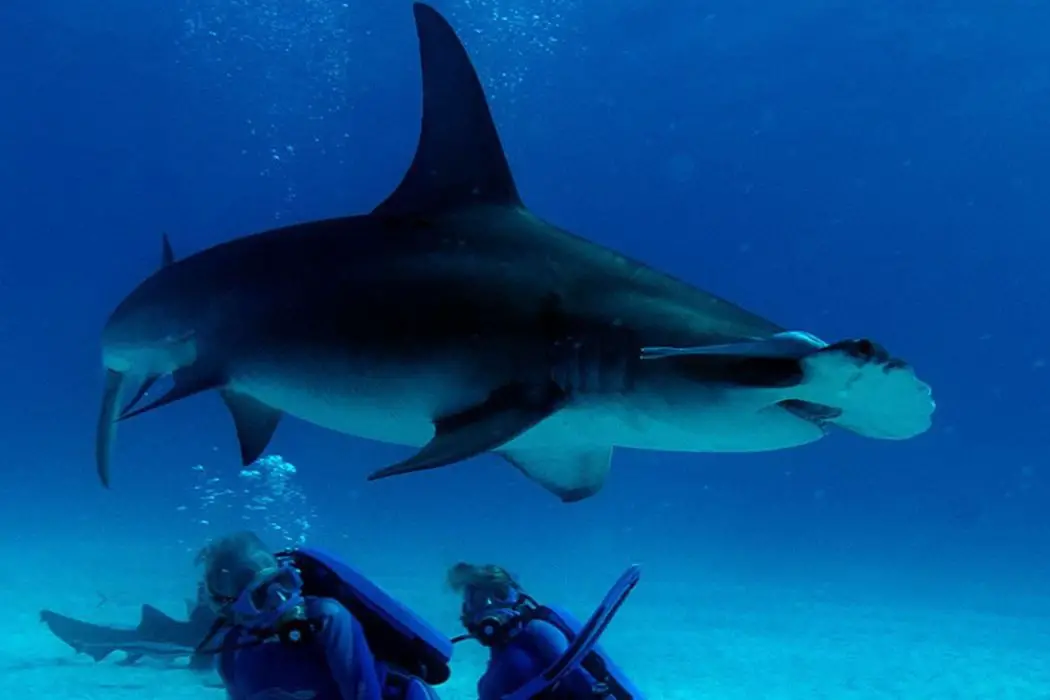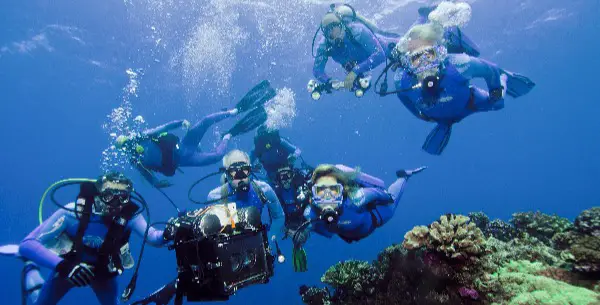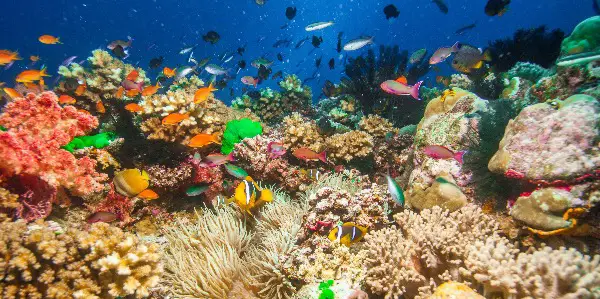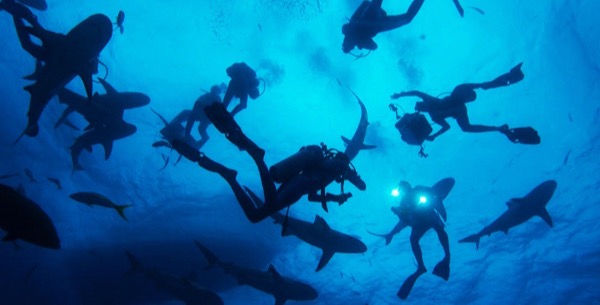WONDERS OF THE SEA: A Middling Sea Life Doc

Matt is a critic from the UK.
Wonders of the Sea follows veteran oceanographic explorer and filmmaker Jean-Michel Cousteau and his children, Céline and Fabien, as they traverse the globe, documenting the amazing creatures of the depths. It is a well-intentioned, enthusiastic movie but it never quite comes together for a satisfying experience.
In the Water It’s Magical…
The scenes in the water are nothing short of spectacular at times. The version I witnessed was in 2D, but I imagine in 3D these underwater scenes are even more immersive. The camerawork in the sea itself is standard, with basic shots of the different sea life. There is nothing extravagant about the way these scenes are filmed, although it doesn’t really need to be. This stripped back approach actually works well, because the simplistic nature of the shots and the Ultra-HD 4K cameras allow the incredible life of the sea to take centre stage. The animals are magnificent, and the camerawork allows the audience to really appreciate them, with lots of crisp close-up shots.

… Out of the Water, It’s a Different Story
For all of the incredible imagery captured in the sea though, as soon as the film leaves the water it plummets downhill quickly. The shots on and above the boat feel like a Thomas Cook advert and are a little cringe-worthy. It feels extremely dated, right down to the visual effects swirling around the CGI globe. This gives the film the feel of something you may watch as part of a museum exhibition rather than up on the big screen.
The film’s aspiration to educate is a noble one, but it is not the film’s only focus. In fact, the overall purpose of the movie seems to shift and change constantly from scene to scene. It starts with shots of Jean-Michel’s father, legendary ocean explorer and Palme d’Or-winning director of The Silent World, Jacques Cousteau. The film then follows the family as they dive across the world, but it’s not really a tale of legacy as much as it thinks it is. Wonders of the Sea never fully commits to its educating either, about the sea-life itself or the wider environmental issues the world faces. The main thrust of this environmentalism is felt in the finale, which is arguably the highlight of the whole film.

Instead of a central focus, the film drifts across the world without very much of note to say besides the already gorgeous visuals. It feels like a family holiday video primarily with the environmental message really just added as an afterthought. This is especially strange considering how vocal the filmmakers usually are about such issues.
The movie would have likely been more compelling if it narrowed this focus onto the environmentalism earlier on, instead of latching onto the family links. This lack of direction or, indeed, the confusing mess it makes of numerous directions, even with a film of only 80 minutes, is a real issue. The spectacular images ultimately cannot save the film from this indecisiveness.
A Weak Script Does the Narrators No Favours
One of the main draws for the film is the inclusion of Arnold Schwarzenegger as a special narrator. Whilst his distinctive Austrian voice does accompany some parts of the film, it is generally Jean-Michel Cousteau and his children Céline and Fabien who do the narrating. The script really does not help the three of them at all. At the best of times, it feels amateur, and at the worst it is painful. This narration fails to capture the audience’s attention and never adds much to the gorgeous imagery of the sea. It would have perhaps been wiser to leave some of the narration on the cutting room floor, and let the images speak for themselves more often.

The Music’s Indicative of the Film
When the narration dies down the score tends to kick in. The film uses a mix of music throughout its runtime, particularly in the underwater scenes. There is a playful orchestral section, as well as the use of wind instruments and chimes later on. Much like the overall film, the music is too scattered to really leave much of an impact. It feels like snippets from numerous other scores blended together, and it only helps in shifting the tone of the film unsatisfyingly over and over.
Wonders of the Sea: Conclusion
The quality of nature documentaries is extremely high at the moment. The BBC have been producing state-of-the-art wildlife documentaries for years and remain at the cutting edge. Despite the mix of amazing equipment and talented divers, this film remains a number of steps behind. The underwater images amaze but the film as a whole lacks focus and is too muddled, and therefore this documentary fails to linger in the mind for very long.
Are you a fan of this type of documentary? Do you think Wonders of the Sea stands toe-to-toe with the very best the genre has to offer? Let us know in the comments below.
Wonders of the Sea is available on digital and on demand from June 4th, 2019.
Does content like this matter to you?
Become a Member and support film journalism. Unlock access to all of Film Inquiry`s great articles. Join a community of like-minded readers who are passionate about cinema - get access to our private members Network, give back to independent filmmakers, and more.
Matt is a critic from the UK.












